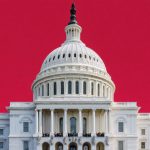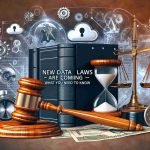
South Korea’s Data Privacy Alert! Major Changes Ahead
In a significant move, South Korea’s Personal Information Protection Commission is ramping up its focus on artificial intelligence and various data-driven sectors. This year, the watchdog has identified several key areas where privacy risks are particularly concerning.
Artificial intelligence applications, encompassing agent services, human resources systems, and legal-tech tools, are at the forefront of this heightened scrutiny. The commission is taking these steps to ensure that businesses prioritizing user privacy are held accountable and that personal data is safeguarded against potential breaches.
Further expanding its watchlist, the regulatory body has also highlighted travel and mobility platforms, digital finance, real estate, and educational technology as sectors in need of greater oversight. These industries, heavily reliant on extensive personal data, are seen as particularly susceptible to breaches and misuse of information.
As part of its enforcement efforts, the commission is set to implement stricter compliance measures and guidelines for organizations operating in these high-risk areas. The ultimate goal is to promote a culture of transparency and protect citizens’ private information amid the rapid growth of technology.
This robust action plan signals a crucial shift in South Korea’s approach to data privacy as the government aims to fortify consumer trust in an era dominated by digital innovation. The implications for businesses are profound, calling for more stringent data protection strategies.
Broader Implications of South Korea’s Data Privacy Initiative
The South Korean Personal Information Protection Commission’s intensified scrutiny of artificial intelligence and data-driven sectors underscores a pivotal moment in the global landscape of data privacy. As technology becomes increasingly interwoven with daily life, the potential societal and cultural ramifications are significant.
The emphasis on accountability in sectors such as digital finance and educational technology is pushing companies to adopt a preemptive stance on privacy concerns. As South Korea leads in regulatory rigor, other nations may feel pressured to bolster their own data protection frameworks. The ripple effects could foster a culture of enhanced transparency, encouraging consumers to engage more willingly with technology under the assurance that their data is safeguarded.
Moreover, the environmental impacts of this heightened focus on data privacy cannot be overlooked. Data centers consume vast amounts of energy, and as businesses scramble to meet compliance standards, they may require more resources, potentially intensifying environmental concerns. Future trends may see a surge in eco-friendly technology solutions, emphasizing sustainable data practices while maintaining robust privacy protections.
Ultimately, the long-term significance of this move may redefine the global economic landscape. Investors may gravitate toward companies committed to ethical data practices, reshaping market dynamics as enterprises adapt to an increasingly privacy-conscious consumer base. This confluence of privacy enforcement and corporate responsibility could herald a new era of innovation, where respect for personal data becomes a cornerstone of business strategy.
Protecting Privacy in the Age of AI: South Korea’s Stronger Regulations
South Korea’s Enhanced Focus on Data Privacy
In a significant development, South Korea’s Personal Information Protection Commission (PIPC) is intensifying its scrutiny of artificial intelligence (AI) and data-driven sectors. This proactive stance aims to tackle the increasing privacy risks associated with advancements in technology, particularly in applications that handle sensitive personal information.
Key Sectors Under Increased Surveillance
The PIPC has identified several critical areas where privacy threats loom large. Notably, AI applications, including agent services, human resources systems, and legal technology tools, are now under comprehensive review. These tools often process large volumes of personal data, and the commission’s concern reflects a broader recognition of the associated risks.
In addition to AI, these emerging sectors also encompass:
– Travel and Mobility Platforms: With the rise of on-demand transportation and travel apps, there is a growing need for secure handling of user data.
– Digital Finance: As online banking and digital financial services proliferate, the protection of personal information becomes even more paramount.
– Real Estate: Digital platforms that assist in property transactions also rely heavily on personal data, necessitating strict oversight.
– Educational Technology: As schools and universities adopt technology-driven solutions, safeguarding student data is of utmost importance.
Stricter Compliance Measures
To address these concerns, the PIPC plans to enforce stricter compliance regulations and best practices for organizations in these high-risk areas. This regulatory shift encourages businesses to adopt advanced data protection measures and emphasizes accountability in handling personal information.
Implications for Businesses
The implications of the PIPC’s new stance are profound. Companies across various sectors will need to invest in improved data protection strategies, conduct regular audits, and ensure transparency with consumers. This shift not only fosters consumer trust but also aligns with global trends emphasizing data security as a top priority.
Trends in Data Privacy
With increasing awareness of privacy rights, and consumer demands for data protection, South Korea’s move is seen as part of a larger trend towards stricter privacy regulations globally. Organizations must stay informed and agile in response to these evolving laws, as failure to comply may lead to significant penalties and damage to reputation.
Predictions for the Future
Looking ahead, experts predict that South Korea will continue to refine its regulatory frameworks in alignment with advancements in technology. The emphasis on AI will likely lead to more innovative protective measures, possibly influencing international standards of data privacy across various jurisdictions.
For further insights on technology and data protection, visit PIPC.

















